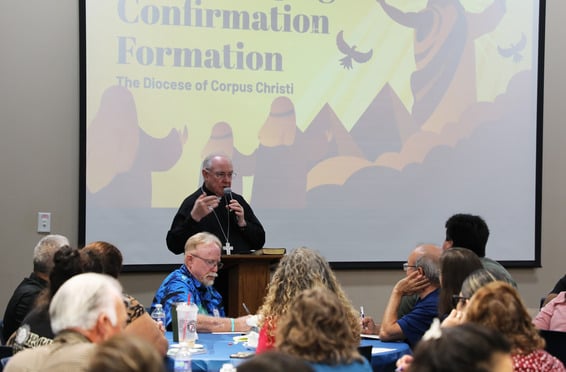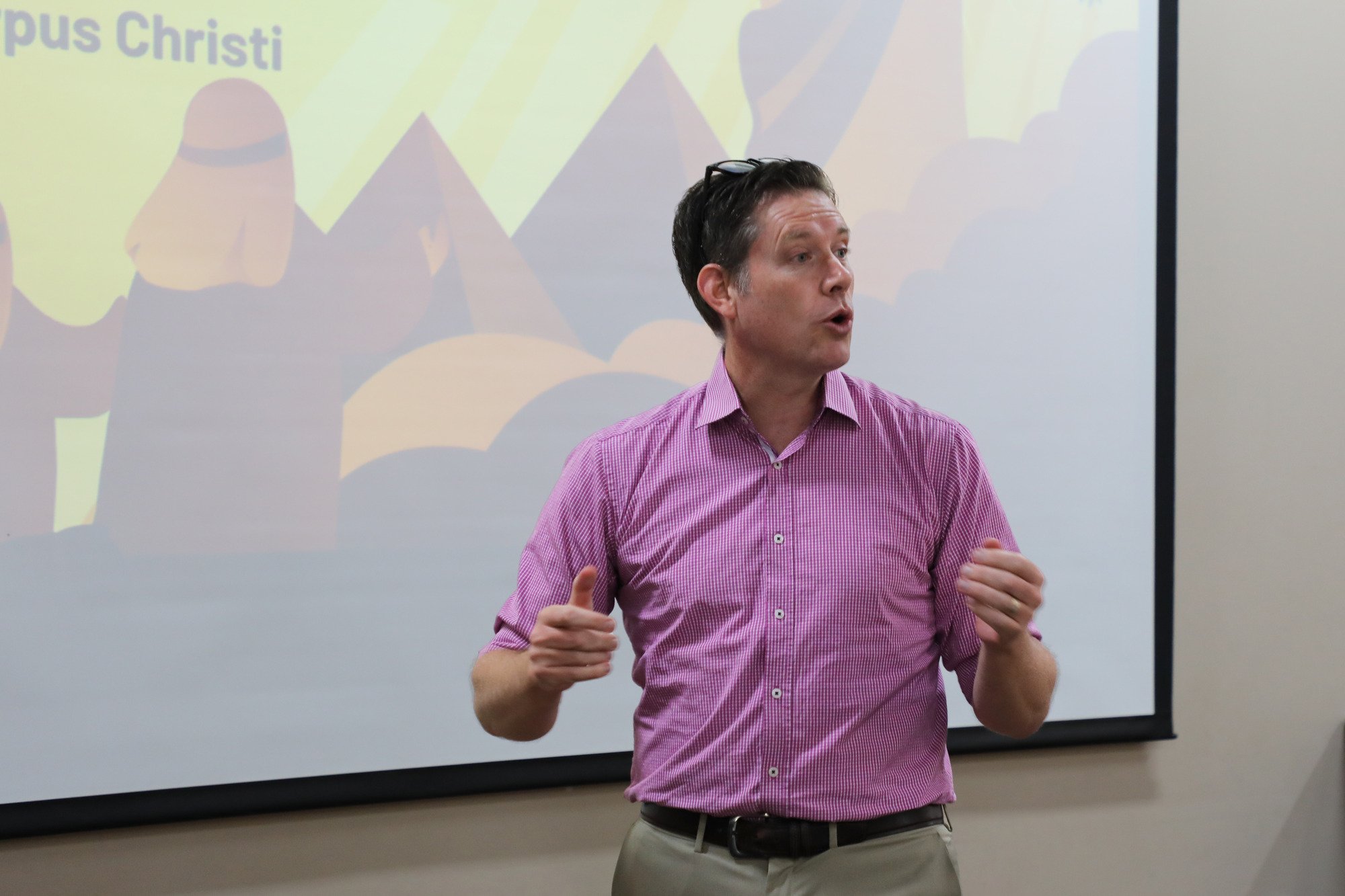Search
Joy, Service Opportunities and Sacred Moments
-
 October 6, 2025What are the highlights of working in youth ministry? Many answers highlighted the joy when teens find a relationship with Jesus, the spark when they discover God’s love, when they grow in their faith, when they become leaders. One hundred catechists and youth ministers gathered on Saturday at St. Patrick’s for a day of formation.
October 6, 2025What are the highlights of working in youth ministry? Many answers highlighted the joy when teens find a relationship with Jesus, the spark when they discover God’s love, when they grow in their faith, when they become leaders. One hundred catechists and youth ministers gathered on Saturday at St. Patrick’s for a day of formation.
They began with Mass, celebrated by Bishop Mulvey. In his homily, the bishop asked, “Are we externally and internally the same person?” Referring to the Gospel, when Jesus saw Nathanael from afar and said, “There is no duplicity in him” (Jn 1:47), he stated that we should always be the same – at work, at home, in church. To be authentic Christians and authentic catechists, “we need to teach what we believe and practice what we teach.”
Bishop Mulvey led the first part of the training. He thanked the catechists and youth ministers for their service and commitment. He mentioned many positive trends in the diocese, giving him great hope: a record number of altar servers being recognized, the DCYC youth conference, and young adults who are hungry for spirituality, as evidenced by the phrase, “The Holy Spirit is at work.” He remembered a young man in Odem answering the question of what he learned in his two-year formation with, “I learned to live God’s lifestyle,” and another teen mentioning that she found communion – “a community of young people in the Church.”
 Chris BartlettHe recommended that the catechists let the young people speak and involve them in service projects, like the “Let’s Brighten Our Community” retreats. By choosing their confirmation saints, many would stay at the surface, like athletes choosing St. Sebastian, or others St. Francis, “because I love my dog,” but they would need to understand that every saint became Christ-like in their unique way. Another critical topic is implementing a post-confirmation program, allowing the teens to be part of the community. However, it is fundamental to live out the Words of the Gospel – not just meditate on them.
Chris BartlettHe recommended that the catechists let the young people speak and involve them in service projects, like the “Let’s Brighten Our Community” retreats. By choosing their confirmation saints, many would stay at the surface, like athletes choosing St. Sebastian, or others St. Francis, “because I love my dog,” but they would need to understand that every saint became Christ-like in their unique way. Another critical topic is implementing a post-confirmation program, allowing the teens to be part of the community. However, it is fundamental to live out the Words of the Gospel – not just meditate on them.
Guest speaker Chris Bartlett, founder and vice president of Ablaze Ministry, began his presentation with a startling statistic: “80% of young people leave their faith by the age of 23.” However, Confirmation formation can change that – if the teens understand that Jesus is their Savior (and their friend), if they experience that they are beloved children of God.
What works in Confirmation preparation may vary from parish to parish. Still, some elements are crucial – building relationships with the teens, sharing testimony, showing enthusiasm and joy, providing sacred moments and meaningful service opportunities, and addressing their questions. And, as the bishop mentioned, after confirmation, they need to find a home in the church, “and that could be as ushers or Eucharistic ministers”– they don’t need to grow old to be part of these ministries.
